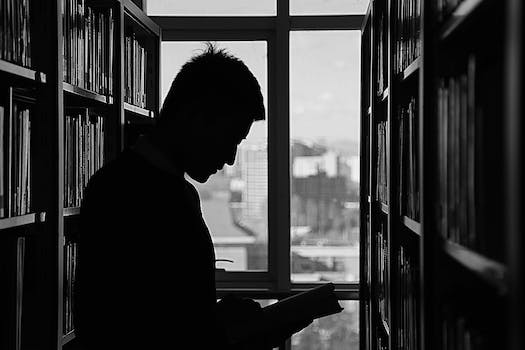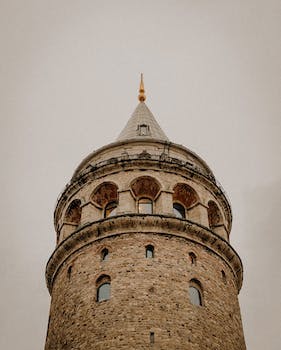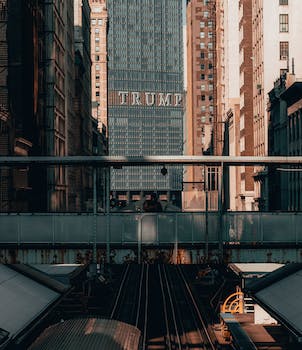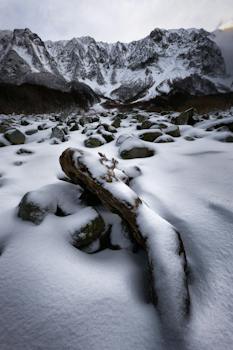

-
Table of Contents
Decline of Democratic Culture in Pakistan: A Recent Trend
Introduction
The decline of democratic culture in Pakistan has been a recent trend that has raised concerns among scholars and observers. This decline is characterized by various factors, including the erosion of democratic institutions, the rise of authoritarian tendencies, and the weakening of civil liberties. These developments have had a significant impact on the overall democratic fabric of the country, raising questions about the future of democracy in Pakistan.
Role of Media in Shaping Democratic Culture in Pakistan
The decline of democratic culture in Pakistan is a topic of concern for many observers. While some argue that this decline is a recent trend, others believe that it has been a long-standing issue. One factor that has been identified as playing a significant role in shaping democratic culture in Pakistan is the media.
The media has the power to shape public opinion and influence political discourse. In a democratic society, a free and independent media is essential for holding those in power accountable and ensuring transparency. However, in recent years, there has been a growing concern about the role of the media in Pakistan and its impact on democratic culture.
One of the main issues is the lack of diversity in the media landscape. A handful of media conglomerates dominate the industry, controlling the majority of television channels, newspapers, and online platforms. This concentration of media ownership limits the range of voices and perspectives that are represented in the media. As a result, the public is often exposed to a narrow range of opinions, which can hinder the development of a robust democratic culture.
Another concern is the sensationalism and lack of objectivity in the media. In the race for ratings and profits, many media outlets prioritize sensational stories over substantive reporting. This focus on sensationalism can distort public discourse and undermine the democratic process. Additionally, the lack of objectivity in reporting can further polarize society and hinder the development of a culture of dialogue and compromise.
Furthermore, there have been instances of media censorship and intimidation of journalists in Pakistan. Journalists who dare to criticize those in power or report on sensitive issues often face threats, harassment, and even violence. This climate of fear and self-censorship can have a chilling effect on the media, preventing them from fulfilling their role as watchdogs of democracy.
The rise of social media has also had a significant impact on democratic culture in Pakistan. On one hand, social media platforms have provided a space for citizens to express their opinions and engage in political discussions. This has allowed for a more diverse range of voices to be heard and has facilitated the mobilization of social and political movements. However, social media has also been used to spread misinformation and hate speech, which can further polarize society and undermine democratic values.
To address these challenges, there is a need for media reforms in Pakistan. First and foremost, there should be efforts to promote media diversity and pluralism. This can be achieved by breaking up media monopolies and creating a more level playing field for smaller, independent media outlets. Additionally, there should be measures in place to ensure the independence and professionalism of journalists, including protection against harassment and violence.
Media literacy programs should also be implemented to educate the public about the importance of critical thinking and discerning reliable sources of information. By equipping citizens with the skills to navigate the media landscape, they can become active participants in the democratic process and hold the media accountable.
In conclusion, the decline of democratic culture in Pakistan is a complex issue with multiple factors at play. The role of the media in shaping democratic culture cannot be underestimated. While the media has the potential to be a powerful force for democracy, there are significant challenges that need to be addressed. By promoting media diversity, ensuring objectivity and professionalism, and fostering media literacy, Pakistan can take steps towards strengthening its democratic culture.
Impact of Political Polarization on Democratic Values in Pakistan
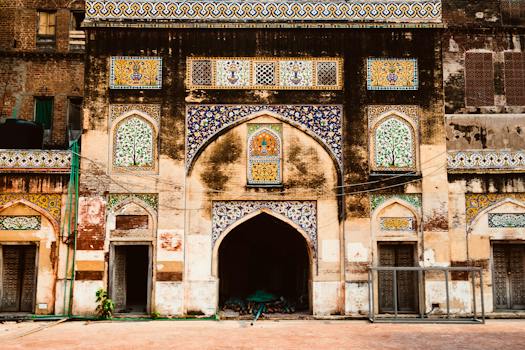
Political polarization has become a significant concern in many countries around the world, and Pakistan is no exception. In recent years, there has been a noticeable decline in democratic culture in the country, raising questions about the future of democracy in Pakistan. This article aims to explore the impact of political polarization on democratic values in Pakistan and whether this decline is a recent trend or a long-standing issue.
To understand the current state of democratic culture in Pakistan, it is essential to examine the impact of political polarization. Political polarization refers to the increasing divide between political parties and their supporters, often resulting in a lack of consensus and compromise. This polarization has led to a toxic political environment, where personal attacks and mudslinging have become the norm, rather than healthy debates and discussions.
One of the most significant consequences of political polarization is the erosion of democratic values. In a polarized society, individuals tend to align themselves with a particular political party or ideology, often at the expense of critical thinking and open-mindedness. This blind loyalty to a specific group undermines the principles of democracy, such as freedom of speech, tolerance, and respect for diverse opinions.
Moreover, political polarization has also led to the rise of populism in Pakistan. Populist leaders often exploit the grievances and frustrations of the masses to gain power, promising quick solutions to complex problems. However, these populist leaders tend to undermine democratic institutions and concentrate power in their hands, further weakening the democratic fabric of the country.
The decline of democratic culture in Pakistan is not a recent phenomenon but rather a long-standing issue. The roots of this decline can be traced back to the country's history, marked by military interventions, weak institutions, and a lack of political stability. These factors have created an environment where democratic values struggle to take root and flourish.
Furthermore, the influence of external factors cannot be ignored when discussing the decline of democratic culture in Pakistan. The country's geopolitical location and its role in the global war on terror have had a significant impact on its political landscape. The constant interference of foreign powers in Pakistan's internal affairs has often undermined democratic processes and institutions, further exacerbating the decline of democratic culture.
However, it is crucial to note that the decline of democratic culture in Pakistan is not irreversible. There is still hope for the revival of democratic values and the strengthening of democratic institutions. This can be achieved through a collective effort from all stakeholders, including political parties, civil society organizations, and the general public.
First and foremost, political parties need to prioritize the interests of the nation over their own personal agendas. They should promote a culture of inclusivity, where diverse opinions are respected and debated constructively. Additionally, political leaders should refrain from using divisive rhetoric and instead focus on policies that benefit the entire population.
Civil society organizations also play a crucial role in promoting democratic values. They can raise awareness about the importance of democracy and hold the government accountable for its actions. By organizing peaceful protests, advocating for human rights, and providing platforms for dialogue, civil society organizations can contribute to the revival of democratic culture in Pakistan.
Lastly, the general public needs to actively participate in the democratic process. This includes voting in elections, staying informed about political issues, and engaging in constructive discussions. By exercising their democratic rights and responsibilities, citizens can ensure that their voices are heard and that democratic values are upheld.
In conclusion, the decline of democratic culture in Pakistan is a complex issue with multiple factors at play. Political polarization, weak institutions, external interference, and a lack of political stability have all contributed to this decline. However, with collective efforts from political parties, civil society organizations, and the general public, there is still hope for the revival of democratic values in Pakistan. It is crucial to prioritize the interests of the nation, promote inclusivity, and actively participate in the democratic process to ensure a brighter future for democracy in Pakistan.
Challenges to Freedom of Expression and Civil Liberties in Pakistan
Pakistan, a country with a rich history and diverse culture, has been grappling with a decline in democratic values and civil liberties in recent years. This decline has raised concerns about the future of democracy in the country and the erosion of fundamental rights, particularly freedom of expression.
One of the major challenges to freedom of expression in Pakistan is the increasing censorship and control of the media. Journalists and media outlets face intimidation, harassment, and even violence for reporting on sensitive issues or criticizing the government. This has created a climate of fear and self-censorship, where journalists are hesitant to speak out against injustices or hold those in power accountable.
Furthermore, the government has been accused of using legal means to suppress dissent and curtail freedom of expression. Laws such as the Prevention of Electronic Crimes Act (PECA) and the Pakistan Electronic Media Regulatory Authority (PEMRA) have been criticized for their vague and broad provisions, which can be used to target individuals and organizations critical of the government. These laws have been used to silence activists, journalists, and social media users, further stifling the democratic discourse in the country.
Another challenge to freedom of expression in Pakistan is the rise of religious extremism and intolerance. Blasphemy laws, which are meant to protect religious sentiments, have been misused to target religious minorities and silence dissenting voices. Accusations of blasphemy can lead to mob violence and even death, creating a climate of fear and self-censorship. This has had a chilling effect on freedom of expression, as individuals are afraid to express their opinions or engage in open dialogue on sensitive religious issues.
Moreover, the decline of democratic culture in Pakistan can also be attributed to the weakening of civil society institutions. Non-governmental organizations (NGOs) and human rights defenders have faced increased scrutiny and restrictions on their activities. The government has imposed strict regulations on NGOs, making it difficult for them to operate independently and effectively advocate for human rights and democratic values. This has limited the space for civil society to play its crucial role in promoting democratic values and holding the government accountable.
The decline of democratic culture in Pakistan is not a recent trend but rather a culmination of various factors that have been at play for decades. The country has a history of military rule and political instability, which has hindered the development of strong democratic institutions and a culture of democratic values. The legacy of authoritarianism and the concentration of power in the hands of a few have contributed to the erosion of civil liberties and freedom of expression.
However, it is important to note that there are still individuals and organizations in Pakistan who are fighting for democratic values and civil liberties. Activists, journalists, and human rights defenders continue to speak out against injustices and advocate for a more inclusive and democratic society. Their resilience and determination give hope for the future of democracy in Pakistan.
In conclusion, the decline of democratic culture in Pakistan is a complex issue with multiple challenges to freedom of expression and civil liberties. The increasing censorship and control of the media, the misuse of blasphemy laws, the weakening of civil society institutions, and the legacy of authoritarianism all contribute to this decline. However, there are still individuals and organizations working tirelessly to uphold democratic values and promote a more inclusive and democratic society. It is crucial for the government and society as a whole to recognize the importance of freedom of expression and civil liberties in building a strong and vibrant democracy.
Q&A
1. What are some factors contributing to the decline of democratic culture in Pakistan?
Political corruption, weak institutions, lack of accountability, and a history of military intervention are some factors contributing to the decline of democratic culture in Pakistan.
2. How has the decline of democratic culture affected Pakistan's governance?
The decline of democratic culture has led to a lack of transparency, limited political participation, and a disregard for the rule of law, resulting in ineffective governance and a weakened democratic system in Pakistan.
3. What are the potential consequences of the decline of democratic culture in Pakistan?
The potential consequences of the decline of democratic culture in Pakistan include increased social and political polarization, erosion of civil liberties, reduced economic growth, and a heightened risk of authoritarianism or military rule.
Conclusion
In conclusion, there is evidence to suggest a decline in democratic culture in Pakistan in recent years. Factors such as political polarization, weak institutions, and the influence of non-democratic forces have contributed to this trend. It is crucial for the government and society to address these challenges and work towards strengthening democratic values and institutions in order to ensure a healthy and vibrant democracy in Pakistan.




